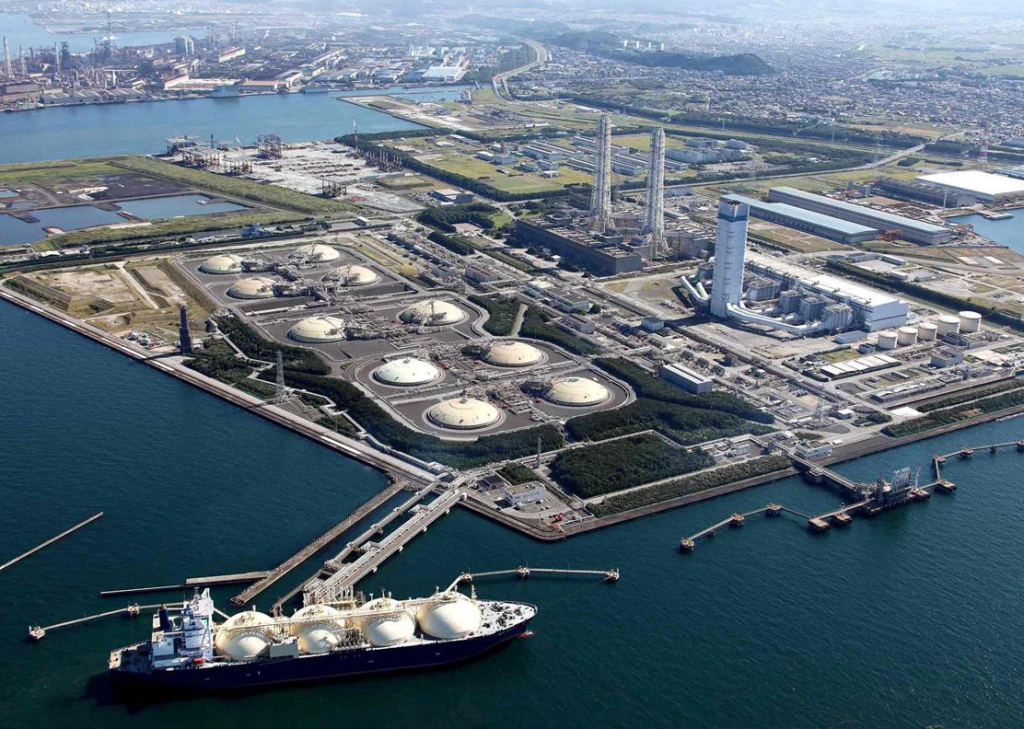NNPC shops bigger demand for falling gas output

![]()
- As Kyari navigates the gas policy maze

Sopuruchi Onwuka
The federal government has activated global investment campaign that flaunts Nigeria’s huge gas supply potentials instead of available capacity for physical volumes; and this has raised concerns in the industry over the tendency to ignore pressing challenges in the chase for distant opportunities.
Whereas there is no doubt that Nigeria sits on huge dormant gas reserves which have been ignored in the persistent scramble for available oil cash; changing global energy choices in line with energy transition, increasing value of gas in the emerging ESG landscape as well as the embarrassing decline in oil production and associated cash yield have all combined to push the Nigerian National Petroleum Company (NNPC) Limited into the demand market.
The Group Chief Executive Officer of NNPC Limited, Mallam Mele Kyari, was in South Korea to hold discussions with key energy facility builders, Daewoo, on how to bring in Asian investors into the projects.
Mallam Kyari’s jaunt to the Asian industrial country signifies federal government’s renewed efforts in troubleshooting earlier blunders related policy shift that abruptly stopped development of export gas projects in preference to investments in domestic gas supply.
The South Korea trip forms part of the belated moves to rekindle the interest of disenchanted international investors in export gas projects that include two trans-continental pipelines and resuscitation of two abandoned liquefaction projects.
Whereas the gas export pipelines have been in the country’s long term gas infrastructure development plan conceived to extend the existing West African Gas Pipeline and also the ongoing Ajaokuta-Kaduna-Kano (AKK) pipeline into European market; the Brass LNG, the Olokola LNG and the 7th to 12th trains of the Nigerian LNG were actually stopped by deliberate policy shift.
The Oracle Today reports that the government is revisiting is gas export policies and associated projects years after some consortiums of international players that initiated LNG projects at Olokola and Brass, all in the Niger Delta, were dispersed with a policy deviation that prioritized domestic gas supply against export.
Former Petroleum Minister, Dr Rilwanu Lukman, and former Group Managing Director of the defunct Nigerian National Petroleum Corporation (NNPC), Dr Mohammed Barkindo, both late, had at a meeting of gas exporting countries in Doha, Qatar, declared discontinuation of all gas export projects in the country including Olokola LNG, Brass LNG and additional trains of the NLNG.
The Nigeria LNG Limited had mounted strong appeal against the government’s gas policy alterations, proposing a dual policy implementation programme that would deploy export revenue in domestic gas harnessing, processing and development of supply infrastructure.
The company fervently argued at national policy debates that the changes would cause Nigerian to lose grounds in the global competition for market share.
Former Managing Director of NLNG, Mr Baba Omotowa, had maintained a strident argument that pointed at Australia, Malaysia, Qatar, Russia and the United States of America as Nigeria’s rivals in the contention for market leadership. And government’s partners in the incorporated NLNG joint venture, including Shell, TotalEnergies and Eni were solidly willing to invest more funds in the company’s growth projects.
New LNG investors including Chevron and BP had also unzipped their purses.
Unfortunately, government’s insistence on policy change automatically halted final investment decisions (FIDs) by all the multinational consortiums that partnered on the new LNG projects which had been conceived to place Nigerian in the front row of strong global sources for gas supply.
It also ended Nigeria’s dream of positioning gas as equal revenue earner to the federation account with petroleum liquids. Following the slew of contract breaches by government, the LNG investment partners including Shell, Eni, BP, Chevron and Total quietly dispersed; ending hopes of BP’s return to Nigeria.
Afterwards, a set of new domestic gas policies and programmes ruled investments in the country; including the Nigerian Gas Masterplan (NGMP), Gas Revolution, the Nigerian Gas Policy, the Nigerian Autogas Policy, Nigerian LPG Penetration, the Nigerian Gas-to-Power Policy, and Nigerian Gas Expansion Programme.
The policies provided incentives and commercial framework for significant investments in virtual pipeline gas distribution, central processing facilities, key gas grid development projects and fuel supply to thermal power stations across the country.
However, while government’s policies induced a fray of commercial competition in the domestic gas market, the country gradually became a laggard in the export market; a situation that further exposed the nation to price shockwaves in the international oil market.
With its aging industry facilities, operating disputes, falling production, rising gas reserves and waning influence in the league of oil exporters; the missed opportunities in the international energy market began to challenge the policies of the past. And this led to revisit of industry propositions for dual export and domestic supply programmes.
In giving approval for return of liberal gas policies, former President Muhammadu Buhari had challenged the NLNG Limited to expedite capacity expansion to Train 12. The approval paved way for return of the country’s existing liquefaction company to its capacity expansion programmes with the ongoing Train-7.
In a parley with industry correspondents in Abuja, Mallam Kyari had told The Oracle Today that the company would pursue all gas valorization programmes across the full midstream chain, including floating offshore liquefaction and export projects. He also pointed at reviving the abandoned Ok LNG and Brass LNG projects even after the original promoters have left.
We gathered that prevailing gas supply dynamics in Europe arising from trade sanctions on Russia have raised the commercial stake for African gas, leading to a flow of foreign investments in new LNG projects across the continent. And delegations of European leaders and diplomats have since the beginning of the Ukrainian war paid visits to the NNPC Limited with commercial proposals for gas supply.
But Nigerian gas export capacity appears to be fully booked. Erstwhile Managing Director of NLNG Limited, Mr Tony Attah, told The Oracle Today that even the Train-7 under project stages have been sold out under tenured supply and purchase agreements.
Thus, taking the commercial advantage in the prevailing global rave for gas requires the NNPC Limited to lead development of capacity expansion in production, processing and supply. The ambition also requires urgent replacement of partners in the nation’s abandoned gas liquefaction and export projects.
Therefore, Kyari’s visit to South Korea amplifies the desperate chase for international gas investors as the country repositions its gas industry in the face of declining oil output and rising popularity of gas in the context of strong global demand and the prevailing global movement towards clean energy.
The meeting with the Group Chairman, Daewoo E&C, Mr. Wonju Jung, and the CEO & President, Mr. Jungwan Baek at Daewoo’s global headquarters in Seoul, South Korea, was to explore avenues for enhancing LNG collaboration.
A statement from NNPC Limited mentioned building of reserves; indicating that Kyari might have offered the Koreans asset acquisition or exploration opportunity in exchange for investing in gas monetization.
The Oracle Today reports that South Korea’s national oil companies have maintained focus on Nigeria for equity oil and gas production opportunities, and had participated in exclusive bid rounds for strategic midstream investors conducted by the defunct Department of Petroleum Resources in 2007.
In all the efforts of the NNPC Limited, industry players and analysts express serious concern about the existing capacity to meet the conscious demand development for the country’s gas when existing facilities like the six liquefaction trains at NLNG’s Bonny plant suffer serious feedgas issues.
With all the projects in existing plans and programmes, analysts scratch their heads over the sources of gas that would fill up emerging demand channels.
Currently, the proposed capacity for the 4,128 kilometer Trans-Saharan Gas Pipeline is about a trillion cubic feet per year. The 6,000 kilometer Nigeria-Morocco pipeline will flow more than 5,000 billion cubic meters or about 1.5 trillion cubic feet of natural gas to Morocco annually. That would be more than 3.0 billion cubic feet per day or about the feed volumes for another six trains of the NLNG.
There is also the 614 kilometer AKK pipeline which will transport up to 3,500 million cubic feet (mcf) of gas a day; and the existing 678 kilometer West African Gas Pipeline (WAGP) which is benchmarked against 5.0 billion cubic meters of gas per year.
Then the existing six trains of the Bonny plants of the NLNG, in full operation, would demand about 3.5 billion cubic feet of gas per day.
Also in the demand calculation are the OK LNG, Brass LNG, UTM FLNG, NLNG expansion projects and many others which Mallam Kyari told The Oracle Today will mop up harnessed gas from the government’s flare gas commercialization programme.
According to 2020 gas output projections on the country by the PWC, Nigeria is expected to produce some 56.5 billion cubic feet of gas in 2023; but actual output in 2022 and early 2023 does not point to delivery of the volumes.
Falling gas production in the country caused downturn in the operations of the NLNG whose output dropped by 16% to 19.6 bcm or less than a 4% share in global LNG exports in 2023.
The impact of the dip in gas output translated to lower LNG export earnings in the year with first quarter figure dropping by 18 percent from N757 billion in the third quarter of 2022 to a five year low of N622 billion in 2023.
According to data by CEIC, Nigeria’s gas output declined by nearly 11% from the previous year to 44.307 billion cubic meters in 2022; down from about 49 bcm in 2020.
The drastic figures, according to the National Bureau of Statistics (NBS), are part of the dire consequences of worsening security situation in the operating environment.
Chairman of an industry investment firm, Mr Austin Avuru, noted in an interview that all above ground issues affecting production in the petroleum industry should be tackled and sufficiently addressed as preliminary steps towards realization of set aspirations in the industry.
Mr Avuru whose AA Holdings facilitates investments in the industry stated that all production capacity growth programmes in the industry would continue to face operating challenges if concerted and persistent efforts are not deployed to arrest prevailing above ground issues.
He pointed at widening gap between strong demand outlook emerging from the market development efforts of the government and shrinking industry output resulting from festering issues hamstringing existing operations.
He made it clear that the reality of operating issues on ground must be made to provide the needed support to investment propositions being marketed managers of the nation’s petroleum resources. He pointed out that investments would always flow to the best operating environment.




